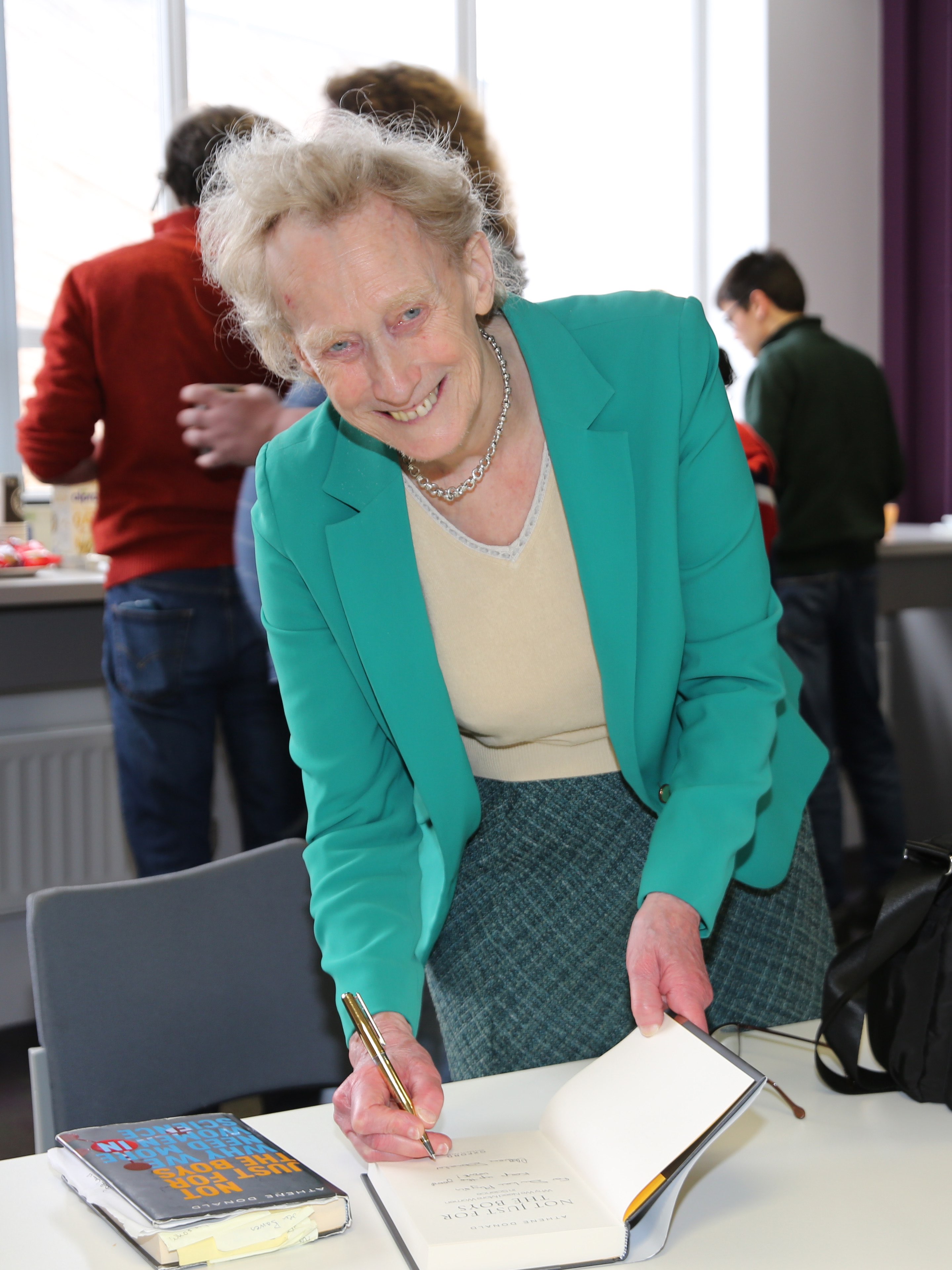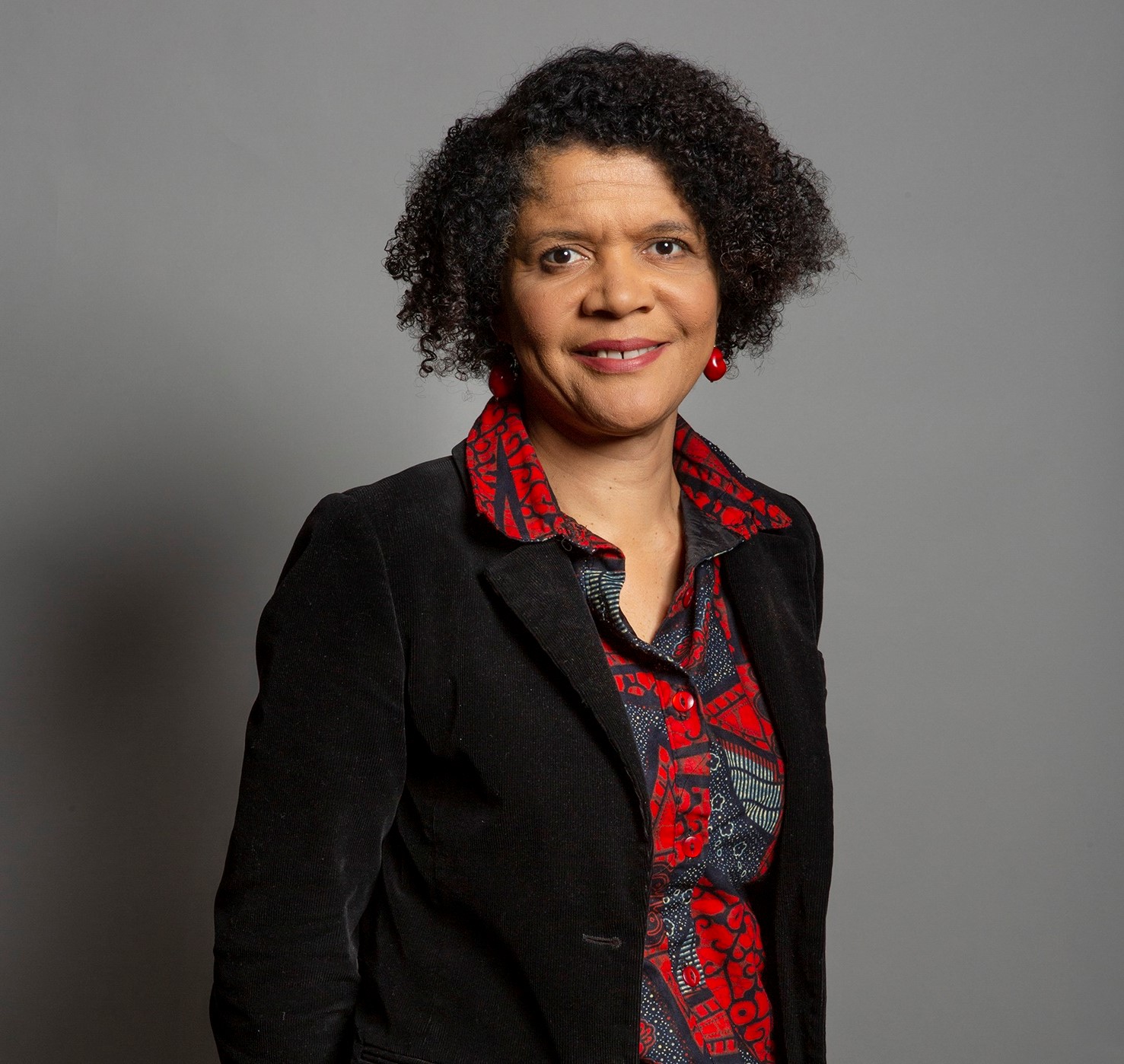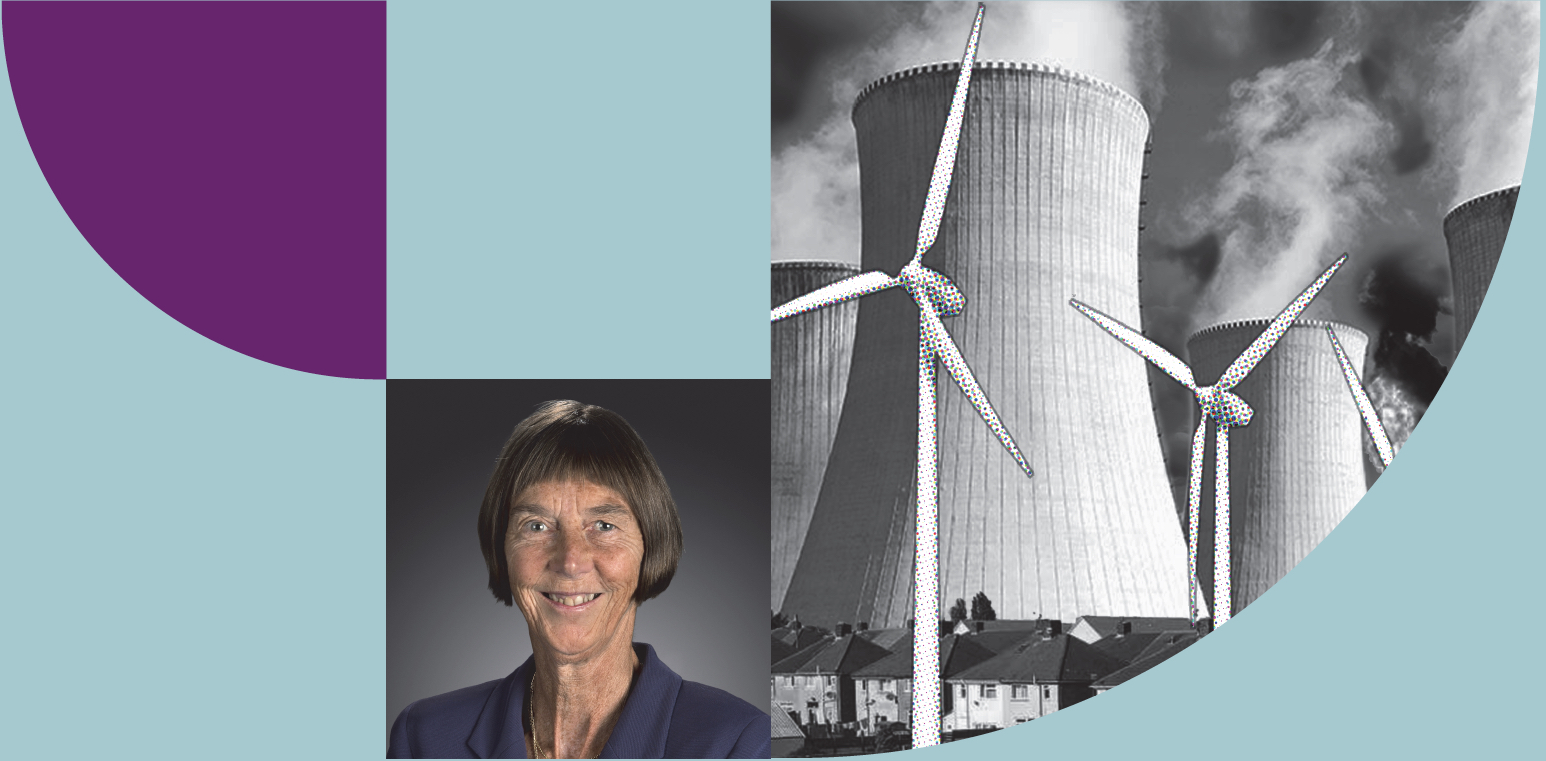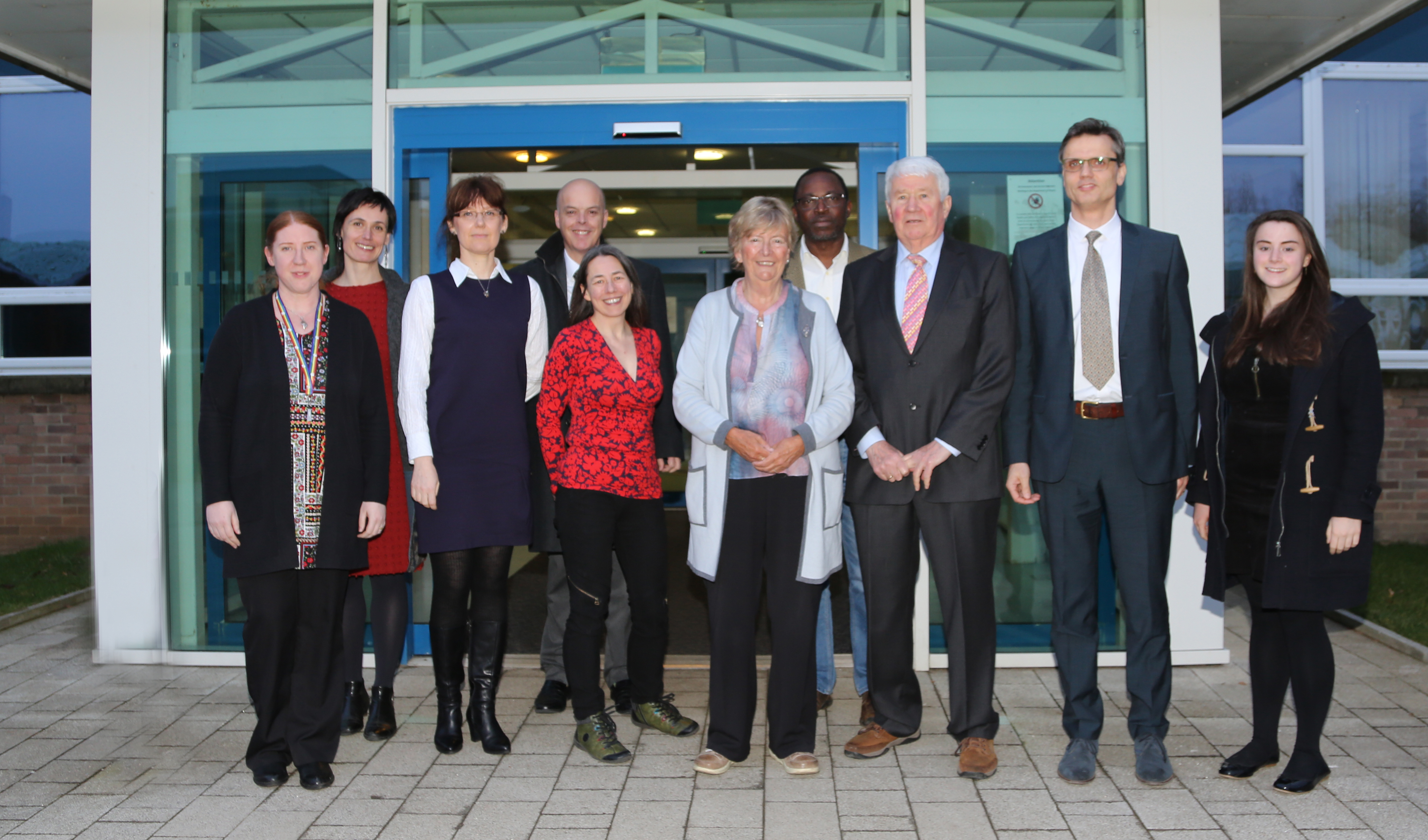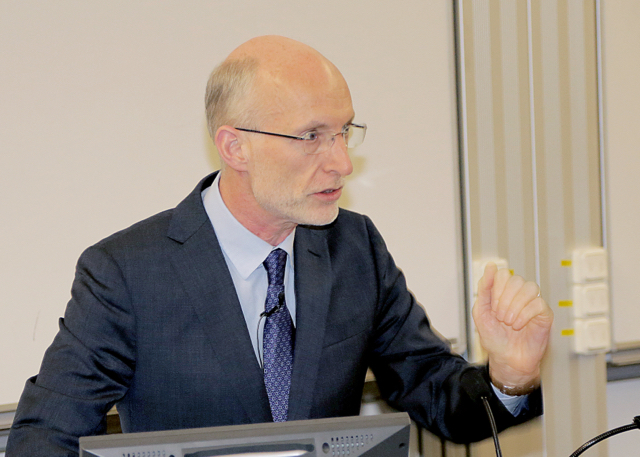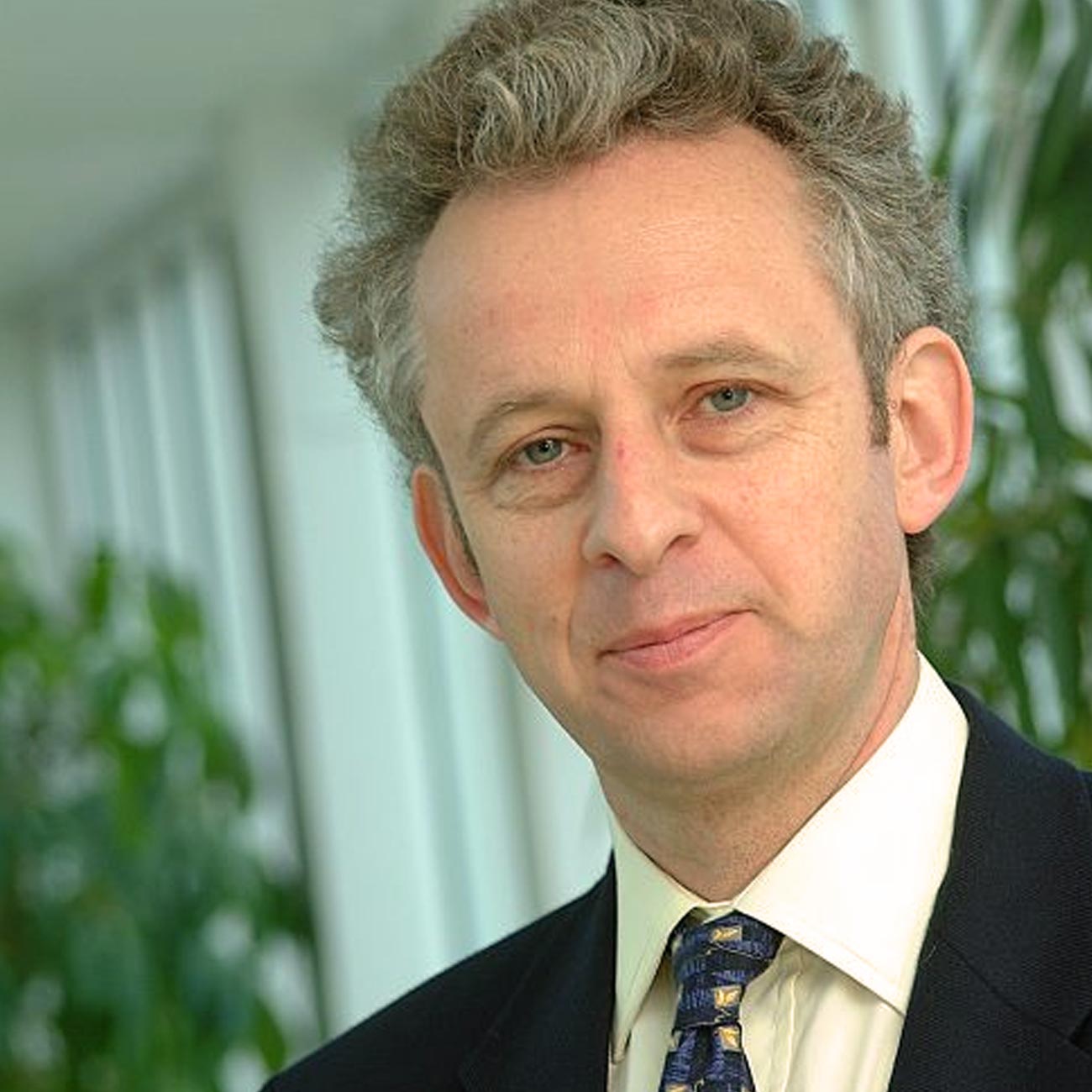The Sir Gareth Roberts Lecture archive
Previous lectures
- 2024 Prof. Dame Athene Donald DBE FRS HonFInstP HonFRSC
- 2023 Chi Onwurah MP, Shadow Minister for Science, Research and Innovation.
- 2022 Dame Sue Ion FRS FREng FIoM3, FNucI
- 2019 Prof. Sir Nigel Shadbolt FRS FREng
- 2018 Prof. Dame Julia Higgins DBE FRS FREng HonFInstP
- 2017 Prof. Steve Furber CBE FRS FREng
- 2016 Prof. Sir Michael Berry FRS, FRSE, FRSA, HonFInstP
- 2015 Prof. Stuart Parkin, Director at the Max Planck Institute of Microstructure Physics
- 2014 Prof. David Leigh FRS FRSE FRSC
- 2013 Prof. Sir Richard Friend FRS FREng
2024
| Title of the talk | |
|---|---|
|
|
Going Beyond the Bench |
| Speaker | |
| Dame Athene Donald DBE FRS HonFInstP HonFRSC | |
| Description / About the speaker | |
|
As an experimental scientist there are many skills to learn on the way to a successful scientific career. But there are a wide range of other activities a scientist can contribute to society, either as well or instead of a career of experimentation and publication. These have their own fascination and frustrations. I will talk about actions and roles beyond the bench scientists can contribute to, and why they both matter and can be fascinating in their own right. Athene Donald is distinguished scientist becoming a FRS for her work relating mechanical properties to the structure of polymers. She is Professor Emerita of Experimental Physics at the University of Cambridge, and the Master of Churchill College, Cambridge. She was a member of the Council of Cambridge University. She has been a member of the Advisory Council of the Campaign for Science and Engineering, and was appointed a Trustee of the Science Museum Group from 2011-16. She was a member of the Scientific Council of the European Research Council from 2013-2018. She chaired the Scientific Advisory Council of the Department of Culture, Media and Sports from 2015 to 2017. From 2006 to 2014 Dame Athene was director of WiSETI, Cambridge University's Women in Science, Engineering and Technology Initiative, and she was the University's first Gender Equality Champion from 2010 to 2014. Outside the University, she chaired the Athena Forum from 2009 to 2013. She sat on the BIS (later BEIS) Diversity group and serves the Equality and Diversity Board of Sheffield University and the Gender Balance Working Group of the ERC; she is a Patron of the Daphne Jackson Trust. She is the author of ‘Not Just for the Boys: Why We Need More Women in Science’, published in 2023. |
2023
| Title of the talk | |
|---|---|
|
|
A Life in Science, Engineering and Politics |
| Speaker | |
| Chi Onwurah MP | |
| Description / About the speaker | |
|
Chi Onwurah MP has had a highly successful career in science, engineering and politics. Chi attended Kenton Comprehensive School in Newcastle, then studied Electrical Engineering at Imperial College. Before entering politics she held senior positions in telecoms and software, culminating in her appointment as Head of Telecoms Technology at OFCOM. Chi chairs various All Party Parliamentary Groups including Diversity and Inclusion in Science, Technology, Engineering and Maths, and is Vice Chair of the Internet, Communications, and Technology Parliamentary group. |
2022
| Title of the talk | |
|---|---|
|
|
Net Zero Carbon by 2050: A realisable challenge or a risk to keeping the lights on? |
| Speaker | |
| Dame Sue Ion, FRS FREng FIoM3, FNucI | |
| Description / About the speaker | |
|
Dame Sue Ion is Honorary President of the National Skills Academy for Nuclear (NSAN) and a member of the ONR Independent Advisory Panel. She was Chair of the UK Government’s Nuclear Innovation Research Advisory Board. Dame Sue was also the UK's representative on the IAEA Standing Advisory Group on Nuclear Energy 2000-2007 and Chair of the Euratom Science and Technology Committee until 2018. |
2019
| Title of the talk | |
|---|---|
|
|
Engineering Intelligence |
| Speaker | |
| Sir Nigel Shadbolt FRS FREng | |
| Description | |
|
We live in an age in which the power of computers and the data available to them increases exponentially. This has led to systems that demonstrate superhuman abilities. This, in turn, raises questions about the emergence of Artificial Intelligence (AI). What is the reality and what do we understand about making smart software and engineering intelligent systems? AI systems require prodigious amounts of data, and data drives many aspects of our modern world. How far can we trust the data itself and what are the challenges of the new data ecosystem that is emerging? There are concerns about what these developments mean for us all as human beings. How will we fit into a landscape of engineered intelligent systems? This lecture will draw on four decades of personal research in AI and will reflect on the fundamental importance of engineering throughout. |
|
| About the Speaker | |
|
Sir Nigel Shadbolt FRS FREng is Professor of Computing Science at the University of Oxford and Principal of Jesus College, Oxford. He is Chairman of the Open Data Institute which he co-founded with Sir Tim Berners-Lee. In 1978 he joined the Department of Artificial Intelligence at the University of Edinburgh as a PhD student. He has researched and published on topics ranging from cognitive psychology to computational neuroscience, Artificial Intelligence to the Semantic Web. He is the co-author of The Spy in the Coffee Machine and in 2018 he published The Digital Ape: how to live (in peace) with smart machines, described as a ‘landmark book’. He has been heavily involved in the commercial exploitation of his research. He has advised government and helped lead and develop the UK’s Open Data policy. In 2013 he was knighted for ‘services to science and engineering’. |
|
2018
| Title of the talk | |
|---|---|
|
|
Seeing is believing: Understanding the behaviour of polymeric materials with neutron scattering |
| Speaker | |
| Dame Julia Higgins FRS | |
| Description | |
| The way long molecules organise themselves and move around gives rise to their behaviour such as the bounce, stretchiness and stickiness of rubbery materials. Understanding this relationship needs both models of the molecular behaviour and a way of “seeing” it in real life. Light is no help for these opaque materials but cunning use of the properties of the neutron provides a different way of “seeing”. | |
| About the Speaker | |
| Dame Julia Stretton Higgins DBE FRS FREng is a polymer scientist. Since 1976 she has been based at the Department of Chemical Engineering at Imperial College London, where she is Emeritus Professor and Senior Research Investigator. | |
2017
| Title of the talk | |
|---|---|
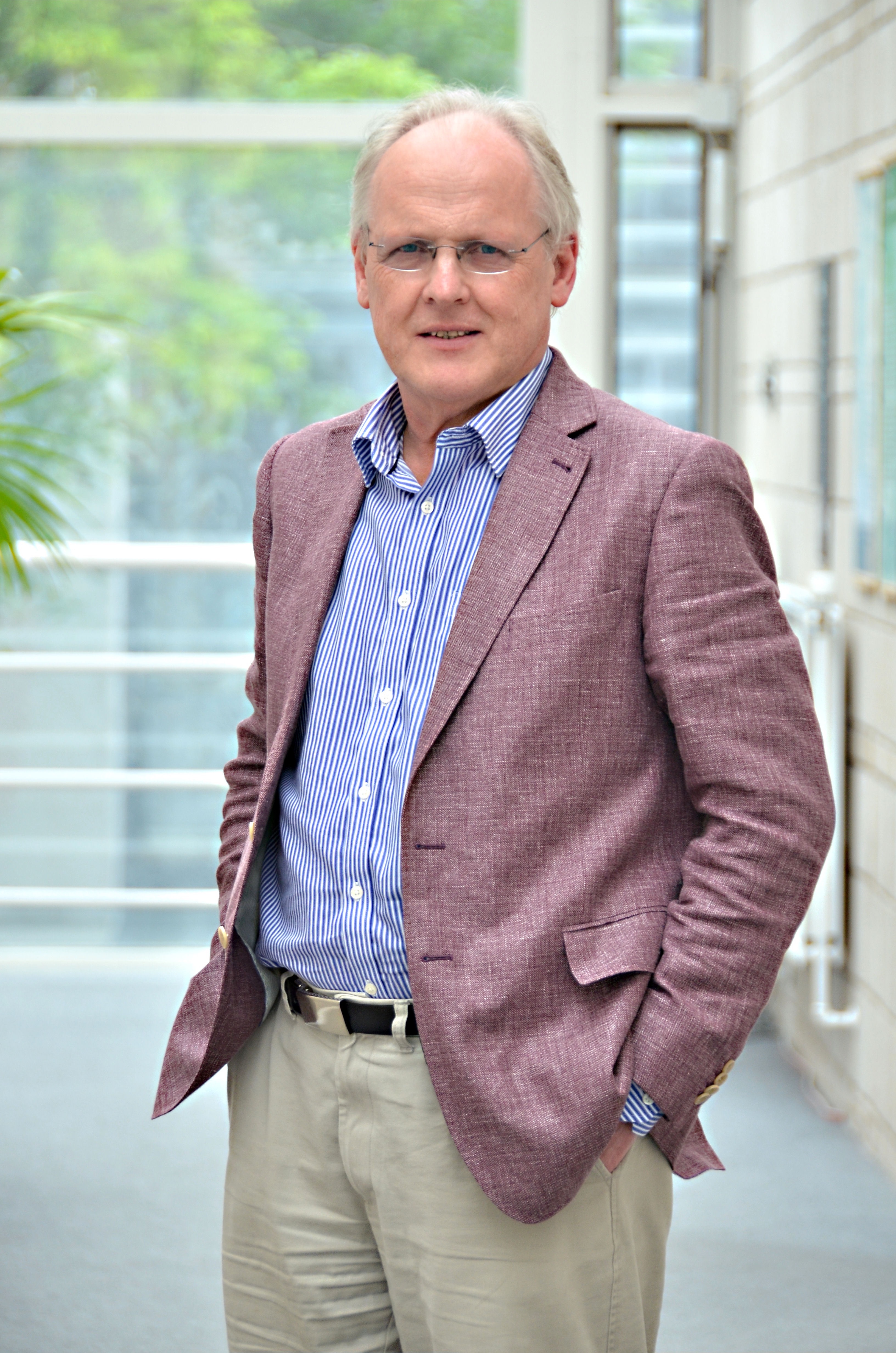  |
Building Brains |
| Speaker | |
| Prof. Steve Furber CBE FRS FREng | |
| Description | |
| The inner workings of the human brain remain a scientific enigma, but there is a growing global consensus, epitomised by the €1B European Union Human Brain Project, that the time is right to employ the formidable computer power now available to us to try to unlock some of the brain’s secrets. The SpiNNaker project at the University of Manchester has been 20 years on conception and 10 years in construction, but is now ready for action, and a half-million processor SpiNNaker machine forms one of the two neuromorphic platforms offered openly under the auspices of the HBP to support brain science across Europe and beyond. | |
| About the Speaker | |
| Steve Furber CBE FRS FREng is ICL Professor of Computer Engineering in the School of Computer Science at the University of Manchester, UK. After completing a BA in mathematics and a PhD in aerodynamics at the University of Cambridge, UK, he spent the 1980s at Acorn Computers, where he was a principal designer of the BBC Microcomputer and the ARM 32-bit RISC microprocessor. Over 75 billion variants of the ARM processor have since been manufactured, powering much of the world's mobile and embedded computing. He moved to the ICL Chair at Manchester in 1990 where he leads research into asynchronous and low-power systems and, more recently, neural systems engineering, where the SpiNNaker project is delivering a computer incorporating a million ARM processors optimised for brain modelling applications. | |
2016
| Title of the talk | |
|---|---|
 |
How quantum physics democratized music: a meditation on physics and technology |
| Speaker | |
| Prof. Sir Michael Berry FRS | |
| Description | |
| Connections between physics and technological invention and aspects of human life that seem far from science are both unexpected and unexpectedly common. And rather than flowing one way - from physics to gadgets - the connections form an intricate web, linking all aspects of human culture, in a way that frustrates our convenient compartmentalisations and coarse interventions aimed at promoting technology transfer. I will discuss this theme not abstractly but with examples, ranging from music to the colour of gold, and explain how quantum physics helps me do quantum physics (sic). | |
| About the Speaker | |
| Professor Berry is a mathematical physicist at Bristol University and was elected a fellow of the Royal Society of London in 1982 and knighted in 1996. From 2006 he has been editor of the journal, Proceedings of the Royal Society. He is famous for the Berry phase, a phenomenon observed in quantum mechanics and optics. He specialises in semiclassical physics (asymptotic physics, quantum chaos), applied to wave phenomena in quantum mechanics and other areas such as optics. | |
2015
| Title of the talk | |
|---|---|
|
|
The Spin on Electronics! |
| Speaker | |
| Prof. Stuart Parkin | |
| Description | |
| This talk gave a history of the development of the science and technology behind magnetic disc drives, which has led to a huge expansion of data acquisition and storage capacities, which in turn have underpinned the evolution of large data centres and cloud services. For this work Stuart Parkin was awarded the Millenium Technology Prize in 2014. | |
| About the Speaker | |
| After a long and distinguished career at the IBM Almaden Research Centre in San Jose, California, Stuart Parkin is now the Director of the Max Planck Institute of Microstructure Physics in Halle and also the Alexander von Humboldt Professor at Martin Luther University | |
2014
| Title of the talk | |
|---|---|
|
|
Tooling Up for Nanoworld: The Magic of Molecular Machines |
| Speaker | |
| Prof. David Leigh FRS | |
| Description | |
|
Perhaps the best way to appreciate the technological potential of controlled molecular-level motion is to recognise that nanomotors and molecular-level machines lie at the heart of every significant biological process. Over billions of years of evolution Nature has not repeatedly chosen this solution for achieving complex task performance without good reason. In stark contrast to biology, none of mankind’s fantastic myriad of present day technologies exploit controlled molecular-level motion in any way at all: every catalyst, every material, every polymer, every pharmaceutical, every chemical reagent, all function exclusively through their static or equilibrium dynamic properties. When we learn how to build artificial structures that can control and exploit molecular level motion, and interface their effects directly with other molecular-level substructures and the outside world, it will potentially impact on every aspect of functional molecule and materials design. An improved understanding of physics and biology will surely follow. |
|
| About the Speaker | |
| Prof. David Leigh is from The School of Chemistry at Manchester University. Professor Leigh was the prominent speaker at the The Royal Society's prestigious Bakerian Lecture 2013, entitled "Making the tiniest machines" | |
Inaugural Lecture 2013
The speaker for the inaugural lecture in the series was Sir Richard Friend, Cavendish Professor of Physics at the University of Cambridge and a fellow of St John's College. His research group is one of a number that became established following the growing interest in molecular electronics that Sir Gareth Roberts did so much to promote. His research achievements and his contributions to science more generally have been recognized by, inter alia, election to Fellowship of the Royal Society and a knighthood. The research has also had considerable industrial impact, not least through the founding of a number of spin-out companies.
| Title of the talk | |
|---|---|
|
|
Organic Electronics |
| Speaker | |
| Sir Richard Friend | |
| Description | |
| In this talk, so Richard explained why and how certain polymers and related materials could be used to advantage in place of conventional semiconductors in applications such as light emission, smartphone displays and solar cells. | |
| About the Speaker | |
| Sir Richard Henry Friend FRS FREng is a British physicist who is Cavendish Professor of Physics at the University of Cambridge and Tan Chin Tuan Centennial Professor at the National University of Singapore. Friend's research concerns the physics and engineering of carbon-based semiconductors. | |


/prod01/prodbucket01/media/durham-university/departments-/physics/major-lecture-series/Hero-Header-bg-image.jpg)
